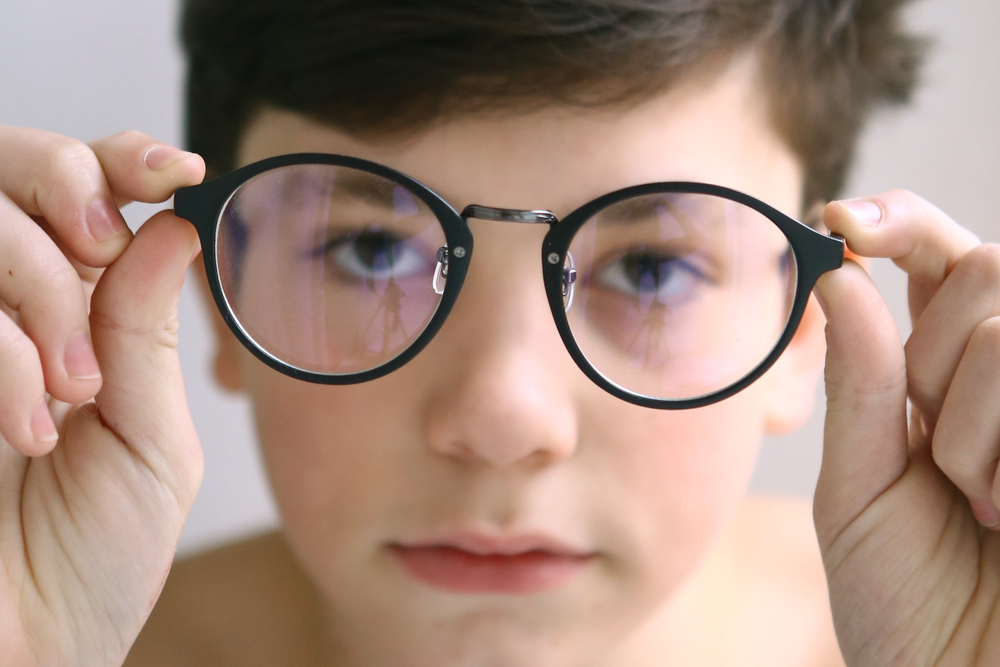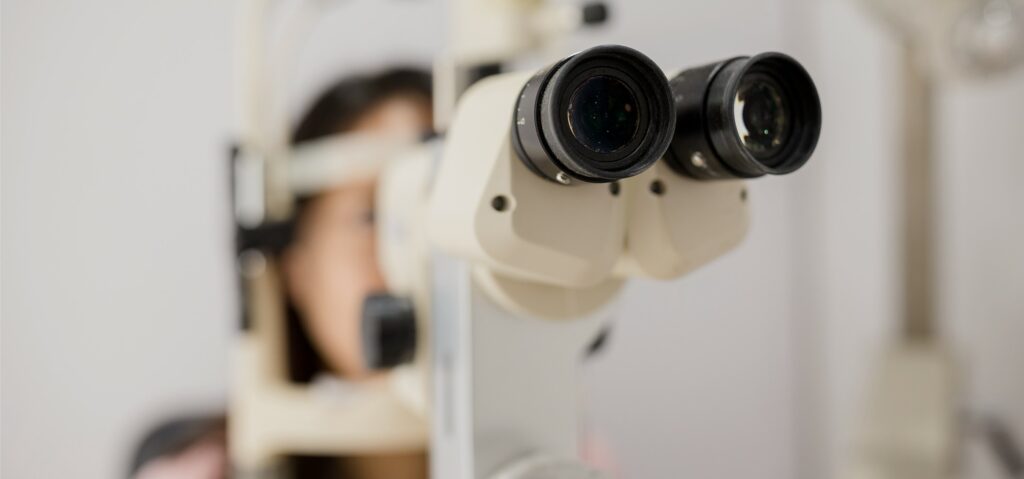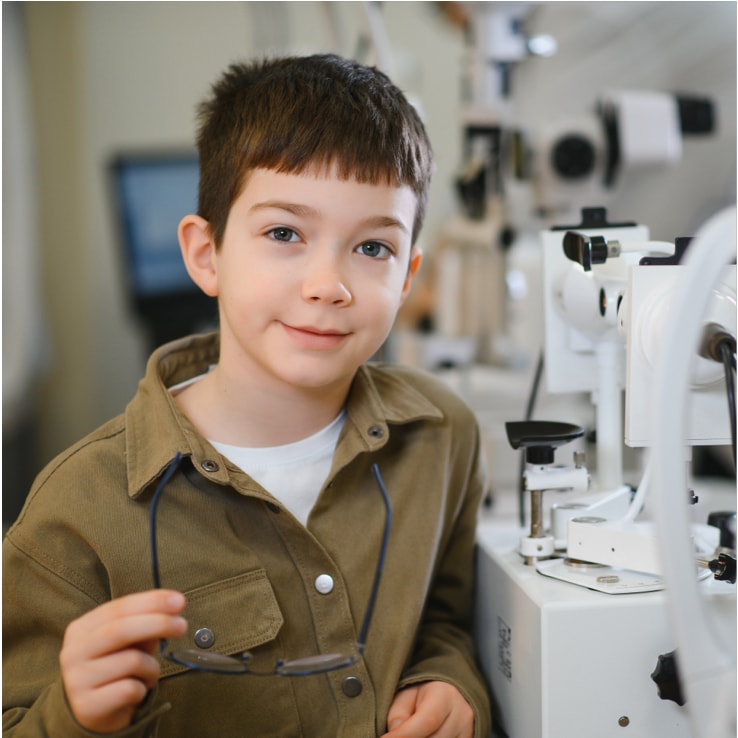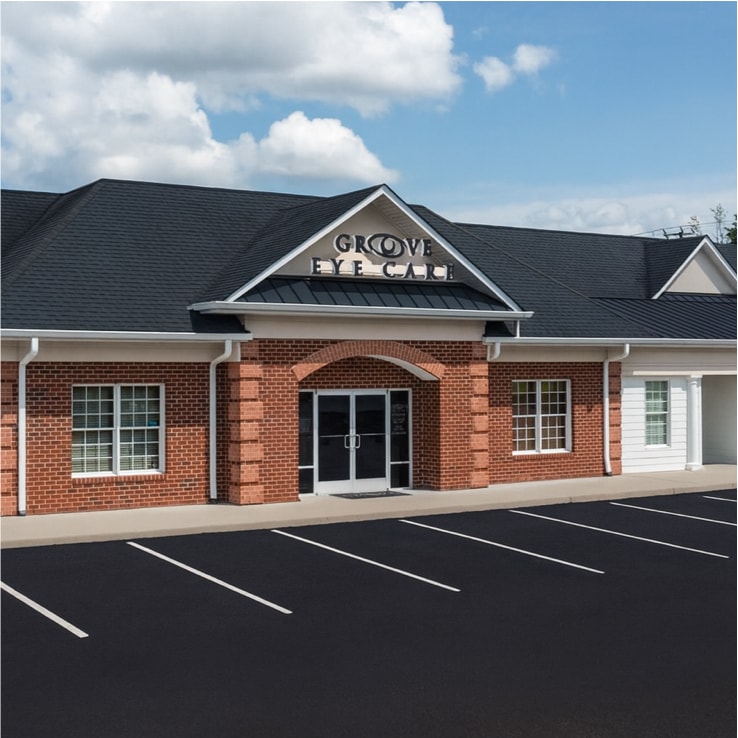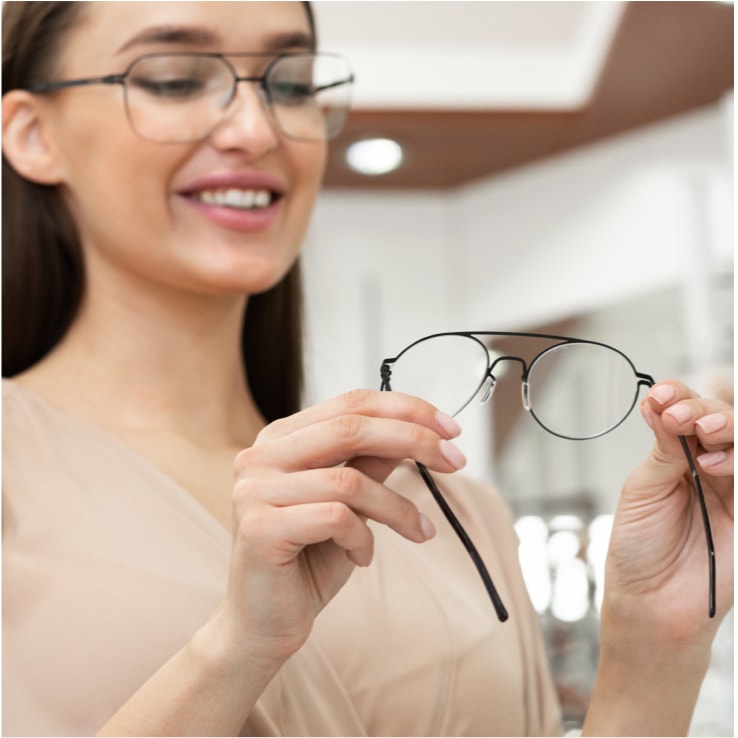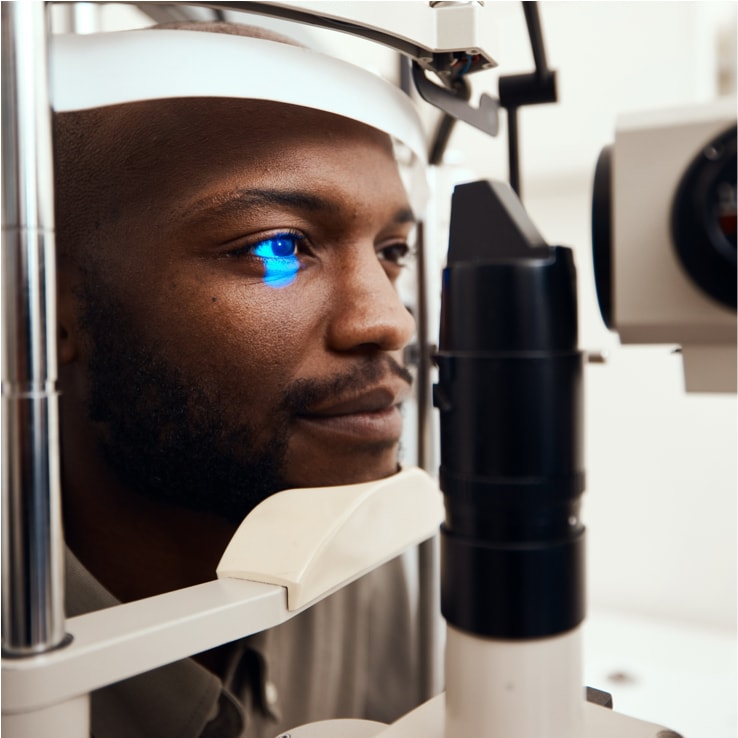Myopia typically develops in childhood and can progress rapidly during the school-age years. As a child’s eyes grow, the myopia can worsen, leading to increasingly blurred distance vision. If left unchecked, myopia can continue to progress, increasing the risk of serious eye health problems later in life.
Signs and Symptoms of Myopia in Children
The primary signs and symptoms of myopia in children include:
- Squinting or struggling to see distant objects clearly
- Frequent headaches or eye strain
- Sitting too close to the TV or holding digital devices very close to their eyes
- Difficulty seeing the board or whiteboard at school
- Frequent requests to move closer to the front of the classroom
If you notice any of these signs in your child, it’s important to have their vision evaluated by an eye care professional as soon as possible.
The Importance of Myopia Management in Children
Myopia can have a significant impact on a child’s vision and overall eye health. High myopia is associated with an increased risk of developing conditions like retinal detachment, glaucoma, cataracts, and myopic maculopathy, which can potentially lead to permanent vision loss.
Uncorrected or poorly managed myopia can make it difficult for children to participate in everyday activities, such as sports, hobbies, and socializing, due to the challenges of blurred distance vision. These vision challenges and social difficulties associated with myopia can negatively impact a child’s self-esteem, confidence, and overall emotional well-being.
Given the potential long-term consequences of myopia, it’s crucial to address the condition proactively and implement effective myopia management strategies. By taking steps to slow the progression of myopia in children, you can help protect their vision and reduce the risk of developing serious eye health problems later in life.
Myopia Management Techniques
One of the most promising myopia management techniques is the use of low-dose atropine eye drops. Atropine is a medication that can help slow the progression of myopia in children by relaxing the focusing muscles of the eye and reducing eye growth. Studies have shown that low-dose atropine (0.01% to 0.05%) can effectively slow myopia progression by 50% to 80% compared to a placebo.
Another effective myopia management technique is Orthokeratology, also known as Ortho-K. This is a non-surgical treatment that involves the use of specialized, custom-fitted contact lenses worn overnight to temporarily reshape the cornea, the clear front part of the eye. During the overnight wear, the Ortho-K lenses gently flatten the central cornea, which helps to reduce the eye’s refractive error and improve distance vision. This temporary reshaping effect allows the child to see clearly during the day without the need for glasses or daytime contact lenses. Ortho-K lenses are custom-designed for each individual patient, and the treatment process typically involves a series of follow-up appointments to ensure proper lens fit and monitor the reshaping of the cornea.
Schedule Your Child’s Eye Exam with Grove Eye Care Today
Myopia is a common and often progressive condition in children, but with the right management strategies, you can take control of your child’s myopia progression and protect their long-term eye health. By understanding the signs and symptoms of myopia, and exploring effective treatment options like atropine eye drops and Ortho-K, you can help your child maintain clear vision and reduce the risk of developing serious eye health problems in the future.
At Grove Eye Care, we are dedicated to providing comprehensive myopia management solutions for children. Visit our office in Richmond or Midlothian, Virginia. Call (804) 353-3937 or (804) 888-8998 to schedule an appointment and learn more about how we can help your child achieve better vision and eye health.


